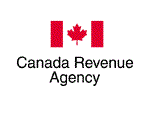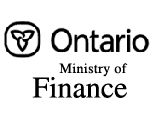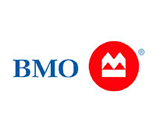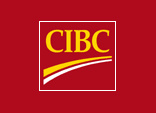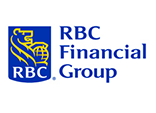Audits
As they say, fear of the unknown is the greatest fear of all. So, let’s dispel some myths and strip away the mystique of the dreaded audit process by CRA, or Revenue Canada, as you may nostalgically remember them. Here is an overview of the post-filing process of CRA, what might trigger an audit, how to deal with an audit and your many legal rights under the tax law. You need to start off with good tax advice.
1. Don’t deal with your tax affairs on your own
You should be getting tax planning advice from a tax professional, such as a Chartered Accountant (CA, Certified General Accountant (CGA), or experienced tax expert. Without this advance planning, you are almost guaranteed to be paying more in tax than you need to. Tax laws and rules are complex. You want to use every legal strategy you can to maximize your net after-tax income. Another benefit of having a tax advisor is that you can use them to file your return, which generally increases the odds you won’t be audited. If CRA does contact you in writing, by phone or in person, ask them to deal directly with your professional accountant. For many different reasons, you don’t want to deal directly with them. Your accountant knows the ins and outs of the tax review process, so can walk that walk on your behalf, without stepping on any landmines, and protect your interests.
2. Post-Filing Process
When you file a paper return, it is generally processed within three to six weeks, after which you will receive a “Notice of Assessment” plus any refund owing to you. This assessment is based on your return and normally involves no investigation. CRA reserves the right of course to dig deeper later on.
3. Audit
After your initial assessment, your return may be selected for an audit. Most audits of individuals taxpayers are “desk audits”. This means the auditor will ask you to supply back-up documents to support a specific claim or claims you have made. These “spot checks” are the most common audit, rather than a full audit. Some audits are referred to as “field audits”, which means the auditor will go to your place of business if you are running a business, to look at your records. Otherwise, any communication from the auditor tends to be in writing or occasionally by phone. The auditor is not entitled to go on a “fishing expedition” through the books of your business. The auditor may request specific information, and you may ask why it is needed. However, as discussed earlier, the best rule of thumb is to ask of the auditor to put their needs in writing, and you will arrange with your accountant to speak with them.
Contact Us!
- (905) 264-8669
- (905) 264-6870 (fax only)
4. Profiling
CRA uses profiling to check certain industry sectors for compliance. For example, the most common businesses that may not document all income are often targeted. This would include construction, hospitality, auto repairs, and home renovations. Some deductions are routinely questioned. Others are randomly reviewed. Another reason why an audit might be triggered, are classic areas that are frequently the source of creative or liberal accounting. For example, child-care expenses, allowable business investment losses, moving expenses, certain donations, alimony, foreign-tax credits, capital-gains deductions on farm property or small business corporation shares, gifts of property that involves an appraisal such as artwork, and large interest-expense carrying charges.
5. Reassessment
If the audit shows that the tax that you owe is greater than what you declared or what was initially assessed, the CRA will issue a reassessment. Normally, you are first notified in writing and given an opportunity to explain the discrepancy. A reassessment cannot be issued more than three years after the date of the original assessment, unless there was fraud or misrepresentation.
Appeals
If the CRA has audited you or reassessed your return which resulted in you owing a great deal of money, let us know. We have over 20 years’ experience in dealing with appeals we are able to represent you and have a 100% success rate. We will only charge a fee if we win the appeal.
Your Legal Rights under the Tax Law
You have numerous rights you can assert. You want to do so through your professional accountant, as they know the rules of the game and how to play it to your advantage. Your advisor can frequently ensure a favourable outcome. Here is a summary:
- What’s all the hype about regarding “Legal Representation”?If you have overstated your deductions or under-reported your income, and contact CRA first and ask that your tax return be corrected, you won’t have any penalties for negligence or tax evasion. There may be some interest charges that you need to pay, or negotiate terms over time. There might be a late filing penalty if you failed to file on time. If you have never filed a tax return or have not for many years, you can go through an accountant and make a voluntarily declaration. You’ve probably all heard the ads and rumours about requiring a lawyer to protect your privacy and to give you legal protection from CRA. Well this is not always the case. The part of the Income Tax Act that this applies to is called “Voluntary Disclosure”. In simple terms it means that someone who has not filed their taxes in several years, or has filed them without completely or truthfully reporting any income and/or expenses, can do so on their own accord. Do you need a lawyer? NO! It’s a simple section of the act that allows taxpayers to voluntarily file their paperwork without penalty. This is CRA’s way of having you file your taxes. They would rather see some of the money voluntarily, than have to go through their process of forcing someone to file. If you disclose that you have filed returns incorrectly, they will not charge you a penalty, but will charge you interest on the amounts owing. Will you go to jail? No! Although there are some circumstances that result in criminal charges, these are few and far between and have nothing to do with voluntary disclosure. CRA is ‘in the businesses of collecting taxes…..not dealing with criminal court cases. If you have overstated your deductions or under-reported your income, and contact CRA first and ask that your tax return be corrected, you won’t have any penalties for negligence or tax evasion. There may be some interest charges that you need to pay, or negotiate terms over time. There might be a late filing penalty if you failed to file on time. If you have never filed a tax return or have not for many years, you can go through through a tax professional and make a voluntarily declaration.
- Right to a Fairness Committee ReviewIf you were unable to file a tax return due to suffering an unusual hardship beyond your control, e.g. natural disasters, death of a family member, illness, etc., then you can ask that all interest and penalty costs be waived through a decision of CRA’s Fairness Committee.
- Right to Object to the Assessment or ReassessmentThere are two main options: Informal Objection – If you feel a mistake has been made in the initial assessment of your return, or a re-assessment, have your tax advisor write to CRA to request an adjustment setting out the reasons. Formal Objection – This is called a “Notice of Objection”. It is a formal objection to the Chief of Appeals at the local Tax Services Office. It must be filed within one year after the taxpayer’s filing due date, or 90 days after the Notice of Assessment, whichever is later.
- Right to Appeal to the Tax Court of CanadaThere are two main options:Informal Procedure – You can make an appeal after the assessment or reassessment has been confirmed, or within 90 days after the service of a Notice of Objection to which no reply has been received. This court has an informal procedure, for federal taxes in dispute of $12,000 or less. You don’t need to use a lawyer.General Procedure – This procedure is more formal and requires a lawyer. Right to Appeal to the Federal Court of Appeal. If you lost an appeal at the Tax Court level, informal procedure or general procedure, you have 30 days from the date the decision was confirmed to you, to appeal to the Federal Court. Right to Appeal to the Supreme Court of Canada. The taxpayer has 60 days from the date of the Federal Court of Canada judgment, to file an application to the Supreme Court of Canada. The Supreme Court to grant or “give leave” to appeal, which is rather rare in tax cases.
- Inflated Charitable DonationsWhat would you do if a “registered charity” offered to give you a charity receipt for an amount higher than what you actually “donate”?In other words, if you “donate” $1000.00, they will give you an official receipt for 3, 4 or 5 times that amount. This in turn would give you large tax refunds. STAY AWAY!!For lack of a better term… it’s a scam.
Sure the “charities” are registered and they have all the official documentation etc… etc… but there are two things you should keep in mind.
First of all, if you donate $1000.00 to a charity, then you are entitled to receive a receipt for exactly $1000.00. That’s it! That’s all! How can you donate an amount and receive a receipt for more than you actually donated? Is someone else donating money in your behalf? Makes no sense! There is no such thing as an “inflated value” of your donation. CRA has been cracking down on these so-called legitimate charities and they have been disallowing every single one. Do not get yourself involved in the sales pitch. You are simply throwing your money away and someone is cashing in on your hard earned cash.
As a rule, CRA will usually do an initial request to see the receipts. At this point they will simply accept everything because it is the first stage of their assessment. They simply want to get all the tax returns in and out. Think of it as hearing a noise in your engine, bringing it into a mechanic and all he does is change the oil and lubricate your fan belts. This may make the noise go away and you think it’s fine, but soon afterwards the belt breaks and you are stranded and may have damaged your engine. Well after CRA does their initial assessment, within 3 years it will go to the department reviewing the charities… now the problems arise. I hope you saved all of those refunds, because CRA wants it all back plus interest. In some cases they will give you an opportunity to make the adjustments yourself and pay any money back plus interest. Otherwise they specifically state in their letter to you that, if they proceed with their own adjustment, there will be a 50% penalty added on to the amount that you already owe. Here is their specific letter — word for word…
The CRA has uncovered several schemes where promoters and/or tax return preparers have sold or provided taxpayers with fictitious or false receipts for charitable donations, often for a fee, and then have issued these receipts to file for and receive unjustified personal income tax refunds.
Taxpayers are expected to exercise a reasonable amount of care and not be negligent or careless in conducting their affairs under Canada’s self assessment system of taxation. Subsection 163(2) of the Income Tax Act and subsection 19(2) of the Ontario Income tax Act provide for penalties that can be levied in cases where a taxpayer either knowingly or in circumstances amounting to gross negligence participates in or makes false statements or omissions in a return, form, certificate, statement or answer. The penalty amount is the greater of $100.00 or 50% of the tax attributable to the false statement or omission.
It goes on to say…
…Income tax returns will be reassessed and we will deny the amount of Charitable Donations claimed, and we will apply the 50% penalty as noted above for a false statement or omission.
Secondly… something I learned way back in accounting. The only benefit you should get out of a charitable donation (other than a small tax savings), is a Good Feeling. Kind of funny in a way, but also makes sense right? People will give to their charities and churches not simply because they want a higher refund, but because they want help others, hence the good feeling.
As you can see, you have many options to exercise your rights. However, it is important to keep in mind that you need a professional to guide you through the maze. It will make all the difference to the outcome and your peace of mind.
